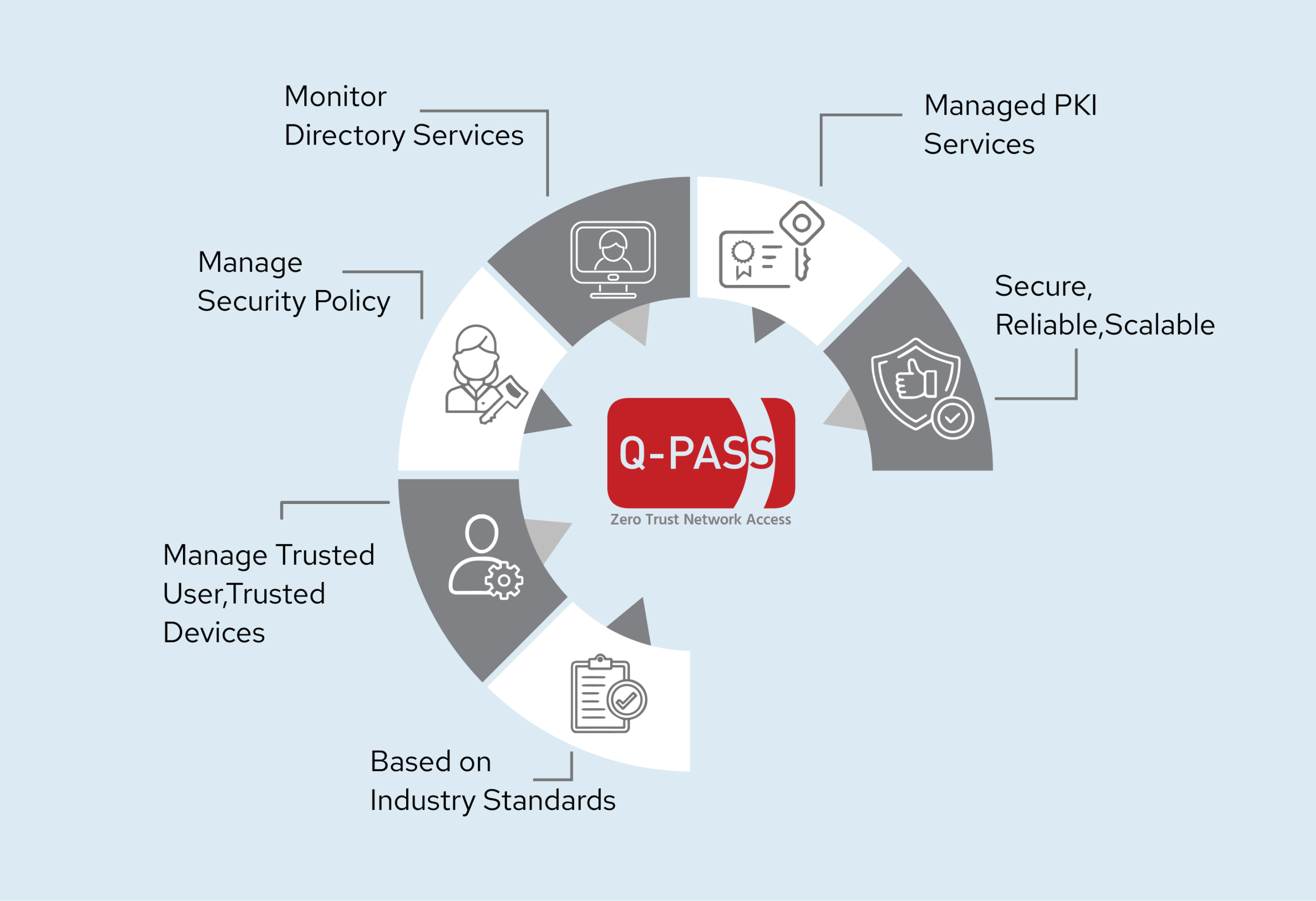In an age where cyber threats lurk around every digital corner, traditional security models are no longer sufficient to safeguard sensitive information. Comes Zero Trust, a revolutionary approach to network security that challenges the conventional notion of trust and highlights continuous verification.
Let’s explore what Zero Trust is all about and how Q-Pass fits into this model.
What is Zero Trust?
Zero Trust is a security concept based on the principle of “never trust, always verify.” Unlike traditional perimeter-based security models, which assume trust within the network perimeter, Zero Trust operates on the premise that threats can originate from both inside and outside the network. As such, Zero Trust requires organizations to verify the identity and security posture of users and devices before granting access to resources, regardless of their location or network environment.
The Role of Q-Pass in Zero Trust:
Q-Pass, a cloud-hosted solution, helps implement Zero Trust principles within organizations. Here’s how Q-Pass enhances network security in alignment with the Zero Trust framework:
Passwordless Authentication:
Q-Pass enables organizations to transition from password-based authentication to more secure, passwordless authentication mechanisms. Using certificate-driven authentication, Q-Pass ensures that only authenticated and authorized users gain access to network resources, reducing the risk of credential theft and unauthorized access.
Dynamic Access Control:
With Q-Pass, organizations can establish dynamic access controls based on user identity, device security posture and environmental factors. By continuously verifying the trustworthiness of users and devices, Q-Pass helps organizations enforce easier access policies and reduce the risk of insider threats and lateral movement by malicious actors.
Integration with Identity Providers:
Q-Pass easily integrates with industry-leading identity providers such as G Suite, Microsoft Active Directory and Okta, enabling organizations to use the existing identity management systems within the Zero Trust framework. By synchronizing user identities and extending authentication capabilities with Single Sign-On (SSO), Q-Pass simplifies the process of identity verification and access control.
Policy Enforcement and Monitoring:
Q-Pass empowers organizations to enforce security policies consistently and monitor network activity in real time. From enforcing password complexity and expiration rules to blocking malicious access attempts, Q-Pass provides organizations with the tools they need to maintain a secure and compliant network environment.
Backed by the capabilities of Q-Pass, Zero Trust emerges as a visionary approach to network security to tackle the risk of cyber threats and digital vulnerabilities. By embracing the principles of Zero Trust and using Q-Pass’ advanced features, organizations can establish a secure and strong network infrastructure that protects against emerging threats and safeguards sensitive information with confidence.
